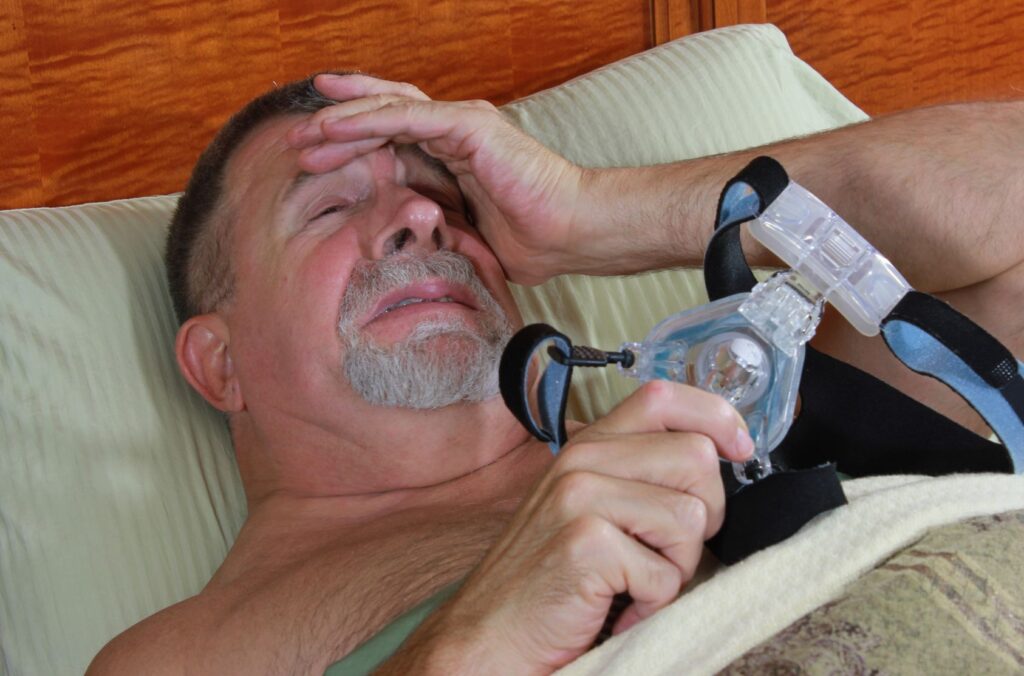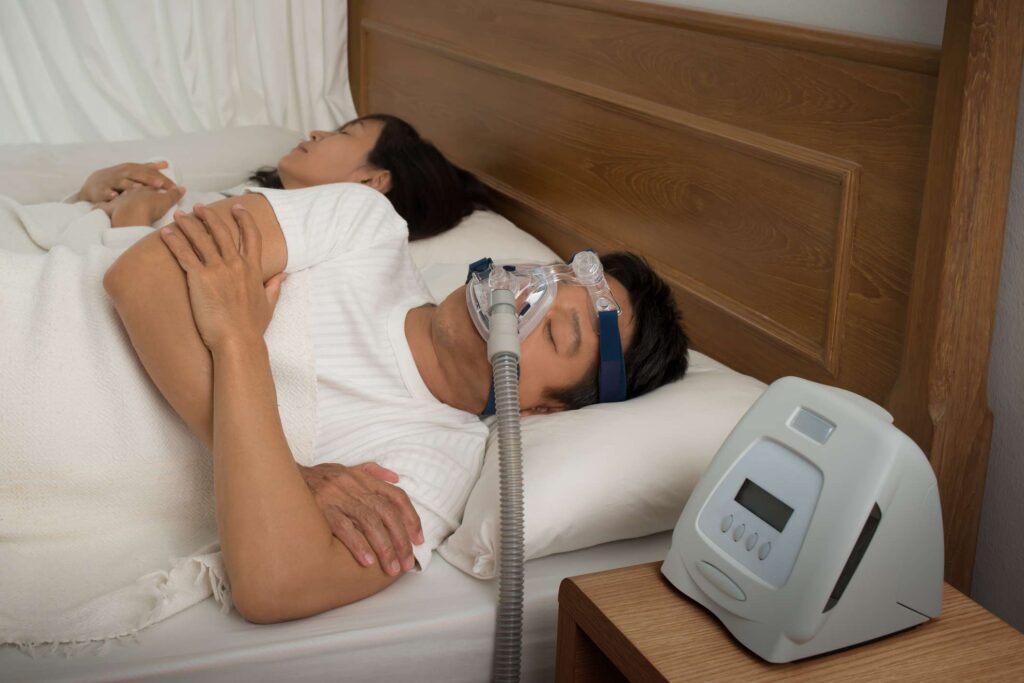Hello there! Do you know why some people don’t value a CPAP machine? As a matter of fact, some people don’t like to use CPAP masks because of their shortcomings. Then, I also noticed that people complaining about most CPAP masks did not even know the flaws. People only talk about its benefits.
However, I am not here to stop you from using a CPAP machine. I only want to expose you to the limitations of using this unique device. If the sleep doctor prescribed CPAP machines to treat sleep apnea or other sleep disorder, the fact remains that you don’t have any other options.
So, the essence of this write-up is not to change your understanding of the CPAP machine. Instead, this write-up is an avenue to know the shortcomings or limitations of continuous positive air pressure machines.
But before we proceed, it would be nice to create a piece of background knowledge. Hence, I will discuss the CPAP machine’s meaning before proceeding with its shortcomings. Therefore, you have a role to play. So please do away with all distractions and follow me closely.

What are CPAP machines?
CPAP means Continuous positive air pressure. Due to an obstruction in their upper airway, people with Obstructive Sleep Apnea have trouble breathing while they are asleep.
They snore, gasp, choke, wake up, or stop breathing due to their tongue or airway tissue physically obstructing their breathing passage.
By providing enough pressured air to keep the airway from collapsing, CPAP device help to maintain a clean airway. In addition, the constant flow of air helps to prevent occurrences associated with snoring and sleep apnea.
Furthermore, a mask, a hose, and a machine make up the three essential parts of a CPAP machine. The fan sucks air into it, filtered and purified by the engine. However, you can adjust the machine’s pressure level, expressed in centimeters of water pressure, with the assistance of your doctor. Honestly, CPAP treatment is the best way to solve obstructive sleep apnea.
Also, the machine is connected to a CPAP mask by a short pipe. The hose should be long enough to prevent you from feeling constrained and have a tight seal to both the device and the mask. The mask fits snugly over your mouth, nose, or both depending on the style. From the machine, pressurized air flows through the hose and into the mask, where it enters the airway.
In addition, please make sure you buy a new CPAP machine. Get continuous positive airway pressure that has a nasal pillow mask. Remember, the nasal mask will protect your skin.
Then, you need to get CPAP machines that align with your sleep position. Also, most CPAP masks are made from silicone. CPAP machines have two pressure settings.
Then, there are other options like APAP machines, Bilevel machine, and BiPAP machines. If you are diagnosed with sleep apnea, you will get a good night’s sleep using a CPAP device. Therefore, please get the right CPAP machine.

What are the shortcomings of using a CPAP machine?
1. Discomfort
One of the shortcomings of a continuous positive air pressure machine is discomfort. This device can make one feel uncomfortable. I don’t know if you’ve seen a CPAP machine before. CPAP machine is not always easy, especially in the early stage of the treatment.
Several people neglected CPAP machines because of this shortcoming. The CPAP machine cannot allow you to do some things. For example, one will not be free even to change positions while sleeping.
Your CPAP machine could be unpleasant, bothersome, or both. When using the tool for the first time, you might experience these issues the most. As a result, it can take some time to adjust. However, you can manage your CPAP discomfort and achieve a restful night’s sleep with a little effort.
2. Difficulty falling asleep
Therapy issues arise most frequently when your CPAP mask doesn’t fit properly. You might find it so hard to fall asleep as quickly as you should if it doesn’t work well when you go to bed. During the day, put on your mask.
Make little changes to establish a good seal and make it comfortable. Can CPAP interfere with sleep?
Although CPAP is intended to treat your sleep apnea and improve your sleep quality, it occasionally fails. In actuality, many individuals, particularly those with mild sleep apnea, frequently report having considerably worse sleep after beginning to use CPAP.
Additionally, it frequently wakes people at night, preventing them from getting the sleep their body requires and likely results in fatigue. Unfortunately, using a CPAP machine can make it harder for some people to fall asleep.
3. Cpap causes nasal congestion
Dry, pressured air passing through the sinuses causes nasal congestion, which can be particularly common in people who have frequent sinus infections. Use a nasal saline spray to moisten your nasal passages for momentary relief. In addition, you should think about utilizing a CPAP humidifier for long-term care.
The air your CPAP machine is forcing into your nasal passages may occasionally be the root of congestion. Even if your mask fits snugly and forms a tight seal, the air can dry out your airways if it is too dry and cold. We’ll talk about an easy fix for this problem later.

4. Nosebleeds
Patients with obstructive sleep apnoea (OSA) may experience negative nasal symptoms from nasal continuous positive airway pressure (CPAP), such as congestion, which can be lessened by adding warm humidification.
Then, how can you stop a CPAP machine nosebleed? You may get a stuffy nose or even nosebleeds when you use a CPAP. First, check to see if your mask is airtight. Some devices come with a heated humidifier that relieves nasal congestion. Saline spray is another option for treating your problems.
5. Cpap machine can cause skin irritation or sores
The CPAP face mask may itch, and patients with sensitive skin may experience a more severe case of itchiness. Redness, sores, pimples, blisters, and rashes can be painful and itchy.
Furthermore, daily CPAP use by a patient may result in replacing a mask with less than one O3 half-life reduction. So, peri-oral dermatitis can develop due to a reaction between the remaining O3 and the person’s natural skin oils.
6. Cpap mask can cause Claustrophobia
Claustrophobia often marks the initial stages of a patient’s CPAP therapy. While receiving therapy, the patient can appear to have breathing difficulties every night. As a result, the patient’s body begins to produce and circulate stress hormones like adrenaline. So then, how can you Overcome Claustrophobia with a CPAP machine?
You should gradually lengthen the time you keep the mask on. Once you are confident doing this, consider putting the mask on while awake for limited periods. Try watching TV or doing something else to keep yourself occupied during this period.
On a final note
Dear reader, I believe you’ve seen something tangible here. I explained the CPAP machine’s meaning and discussed this device’s six shortcomings. Hence, you can ask questions regarding this topic. Thanks for reading!

